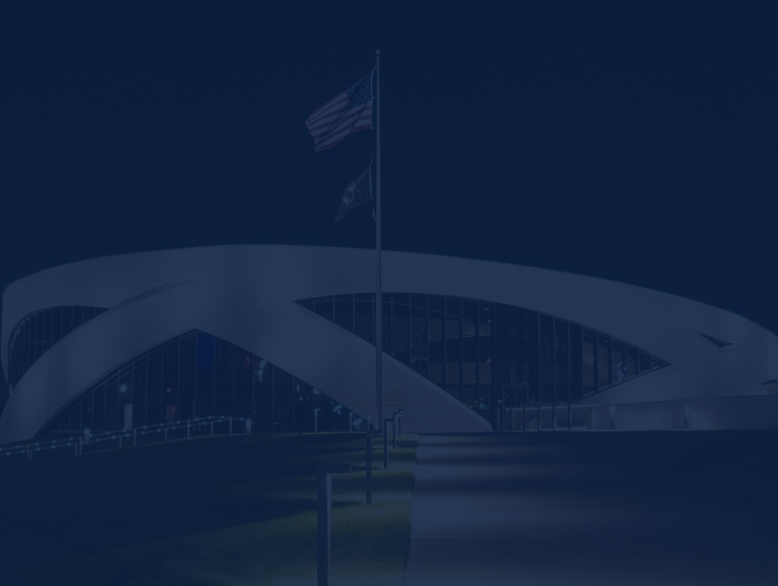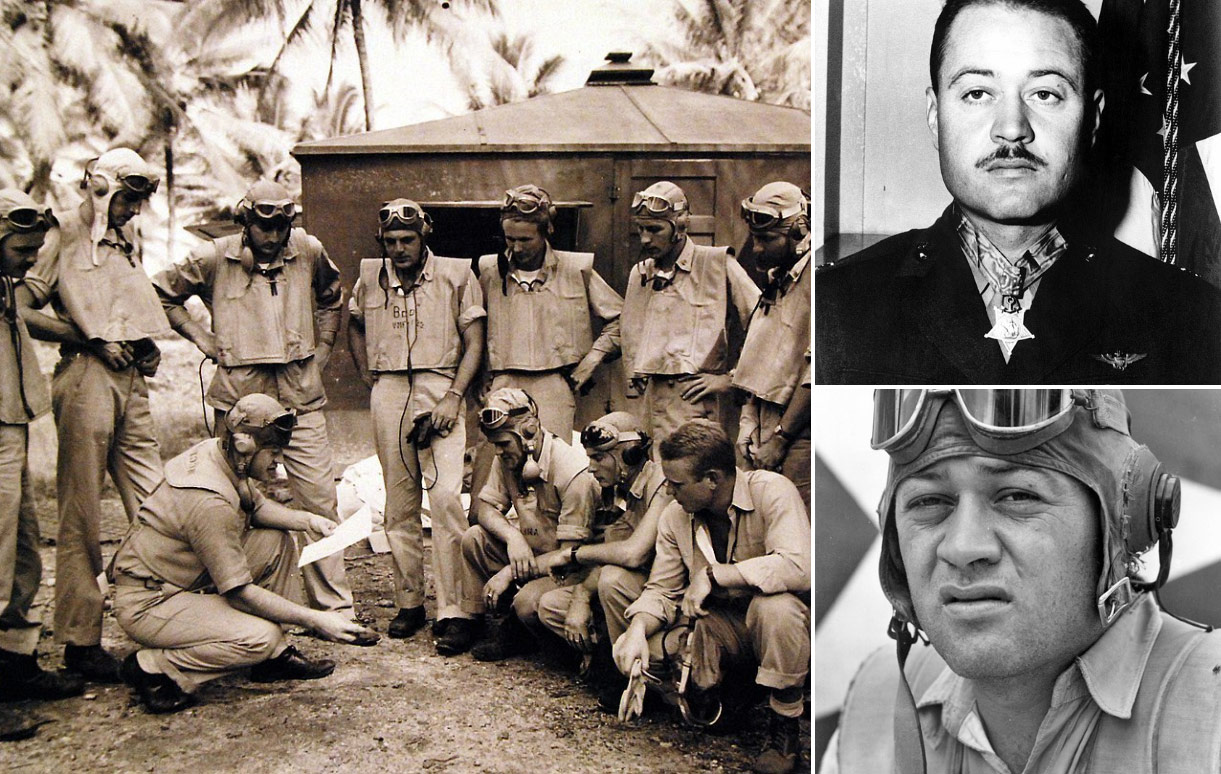
The New Britain campaign, conducted between December 1943 and August 1945, was a major World War II offensive aimed to neutralize the important Japanese base at Rabaul, New Britain. 78 Allied fighters comprised of U.S. Marine Corps F4U fighters, U.S. Navy F6F fighters and RNZAF Kittyhawk fighters took off from Torokina Airfield on Bougainville, Solomon Islands for a fighter sweep over Rabaul, New Britain. Among them was Colonel Gregory “Pappy” Boyington, who led combat missions with Marine Fighter Squadron 214. Explore how he became one of the Marine Corps’ greatest pilots and earned the Medal of Honor.
Journey of Service
Born on December 4, 1912, in Coeur d’Alene, Idaho, Boyington was of Brulé Sioux descent. His interest in flying began early in life. He loved to build model airplanes as a boy and even talked famed stunt pilot Clyde Pangborn into taking him and a friend for a ride.
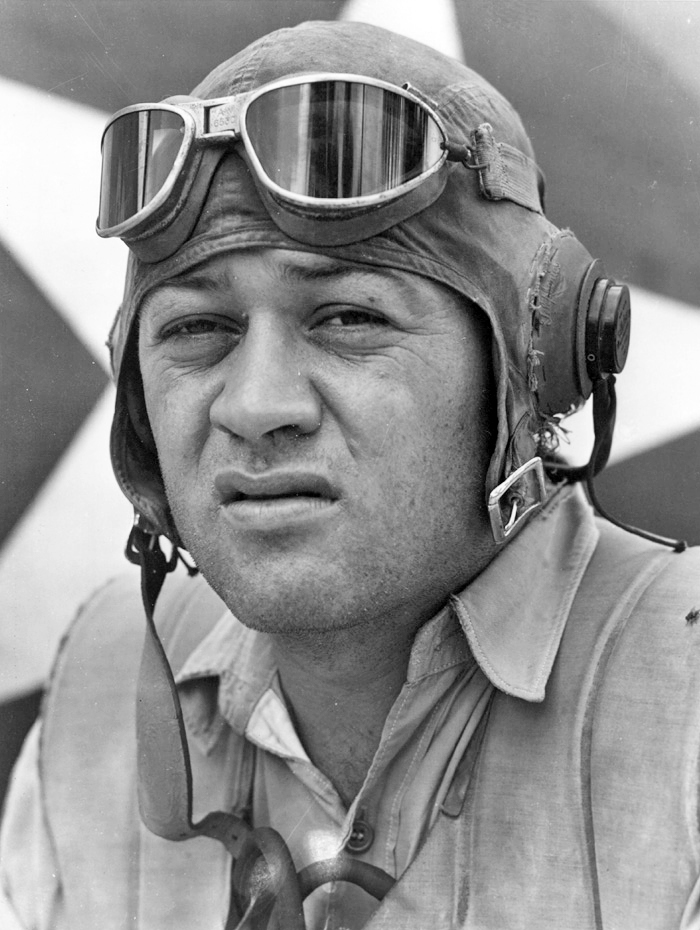
Boyington’s military training began in college as a member of the Army ROTC and then transferred to the U.S. Marine Corps Reserve on June 13, 1935. Eventually he resigned as a Naval aviator to accept a position with the American Volunteer Group, better known as the Flying Tigers, a unit of American military aviators sent to aid China in its fight against Japan.
Boyington returned to the U.S. in July 1942 when the Flying Tigers disbanded and commissioned back into the military as an active-duty first lieutenant in the Marine Corps Reserve. He earned the nickname, “Pappy,” because at 31; he was a decade older than most of his men.
World War II Hero
In the fall of 1943, Boyington took over command of the newly formed Marine Fighter Squadron 214 or better known by its nickname, the “Black Sheep Squadron.”
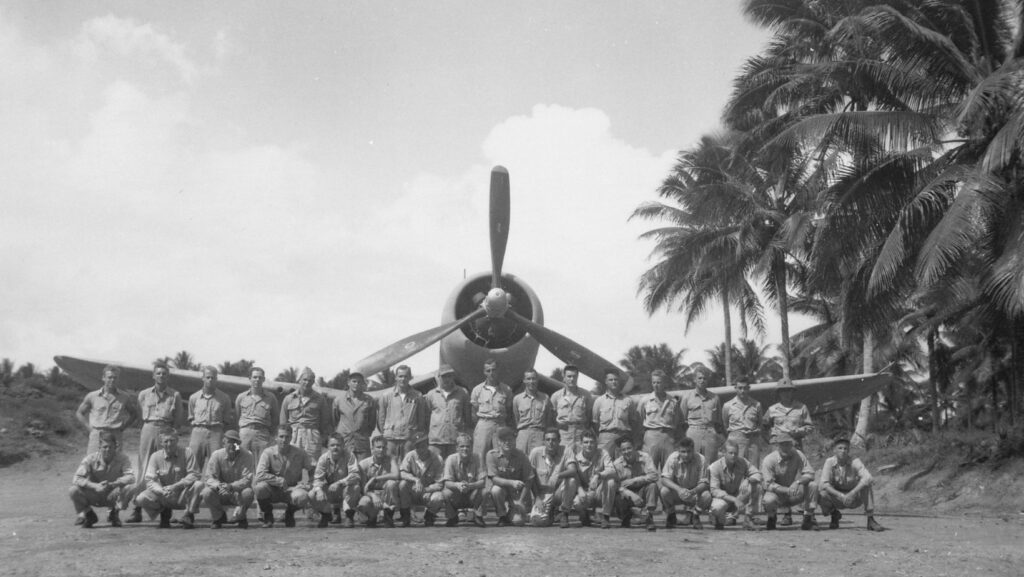
During his squadron’s first tour of combat duty in the Rabaul area, he shot down 14 enemy fighter planes in 32 days. By December 27, his record had climbed to 25. Under his command in Bougainville, the squadron shot down 20 enemy craft in the ensuing action without the loss of a single ship.
On January 3, 1944, Boyington beat World War I ace Eddie Rickenbacker’s record of 26 enemy planes destroyed. At that exact time, he was shot down over the Pacific and captured by the Japanese. Upon his release after more than 20 months as a Prisoner of War, his last two “kills” were confirmed, bringing his total to 28 – the highest for any Marine ace during World War II. On October 5, 1945, Boyington joined several other Marines at a ceremony at the White House to receive the Medal of Honor from President Harry S. Truman.
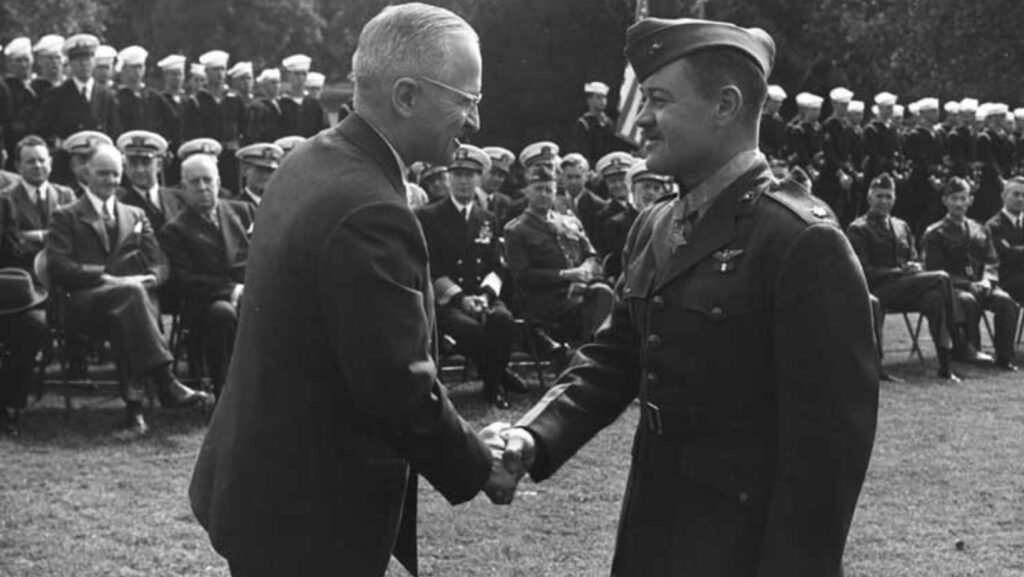
Boyington is among 32 other Native Americans who earned the Medal of Honor. Despite overwhelming odds, he proved himself as a superb airman and determined fighter during World War II. Join us in honoring his service and sacrifice throughout the month of November.


